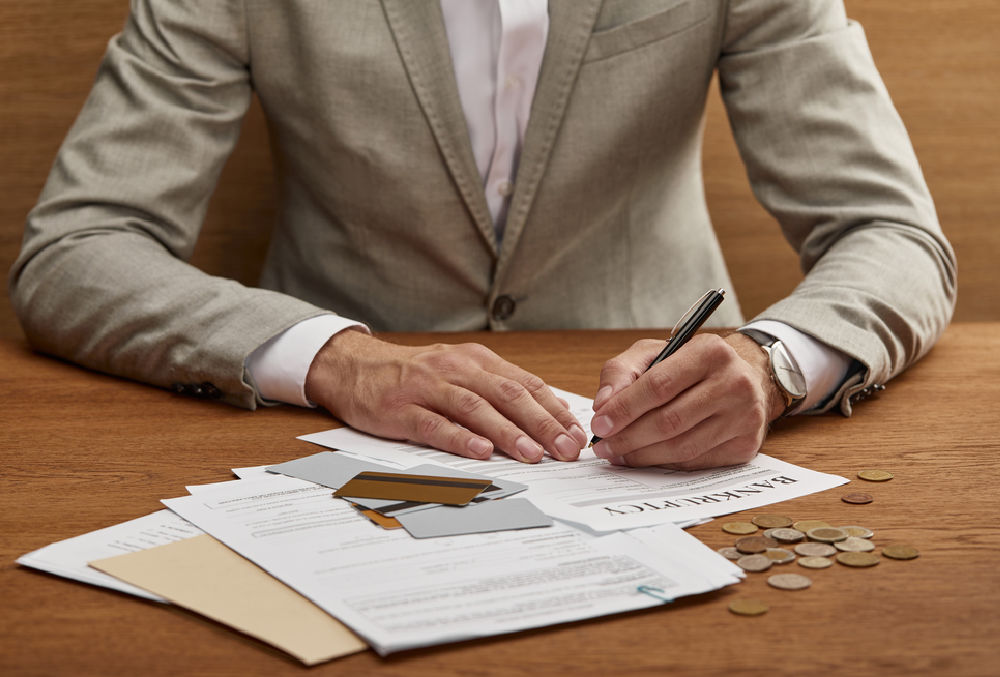Debtors who run their credit card balances up before they file for bankruptcy could suffer consequences. Primarily, it could result in your debt becoming ineligible for discharge, which is often the whole point of filing for bankruptcy. So in many cases, running your credit card debt up is not worth it.
To fully understand how this works, it helps to understand the basics of credit card debt when you are filing for bankruptcy, which we will dive into below.
If you have further questions after reading this article or need help filing for your Chapter 7 bankruptcy or Chapter 13 bankruptcy, contact the Indianapolis bankruptcy attorneys at Sawin & Shea, LLC.
Understanding Credit Card Debt and Bankruptcy
Most people file for bankruptcy in the hopes of having their debts that they are struggling to pay discharged. However, debt discharge for credit cards can work differently depending on the type of bankruptcy you file.
Chapter 7: When you file for Chapter 7, you can have most, if not all, of your unsecured debts discharged, which includes your credit card debt. However, in exchange for having these debts wiped out, your non-exempt property could be sold by the bankruptcy trustee, and the funds will be used to pay off your creditors.
Chapter 13: Filing for Chapter 13 works a little differently. With this type of bankruptcy, your credit card debts are generally not discharged upfront. Instead, you are given a more affordable payment plan that allows you to pay off your creditors with a monthly amount that is more suitable to your financial situation.
This is important to understand because it can play a role in what happens if you run your credit card debt up. For example, if you run your credit card debt up and you file a Chapter 7, that debt could all get wiped out if the charges were necessary and not fraudulent.
If you run the credit card debt up and then file a Chapter 13, you will still likely have to pay all of that debt off, but through a monthly payment—again, so long as the charges were legal and not found to be fraudulent.
Running Up Credit Card Debt Prior to Bankruptcy
Generally, it is best not to use the credit card that you plan on including in your bankruptcy if you want your case to go as smoothly as possible. However, it is understandable that you may need to use your card for essential or necessary purchases, such as to pay for groceries, gas, or rent.
However, if your creditors or bankruptcy trustee discover that you were running your balances up with fraudulent intent, it could result in serious consequences. For example, if you start making a bunch of unnecessary purchases knowing that you can just get away with not paying for them when you file for bankruptcy, this will likely be discovered. You could be charged with bankruptcy fraud or have your debt discharge denied. Likewise, taking out cash advances with your credit cards for unnecessary purchases can also be viewed as fraudulent.
If your purchases are for necessary goods and services, then you should be fine, but if you made purchases with fraudulent intent, you could be asked to repay those debts. If you do not or cannot repay the debts, you could face an adversary proceeding lawsuit.
Exceptions to Using Your Credit Card When Filing For Bankruptcy
Again, it is best to avoid using your credit card before filing for bankruptcy if you can, but the exception to using it will depend on whether you are purchasing what is considered necessary goods and services or luxury goods and services.
- Necessary goods and services: These are things that you need to live and support you and your family. This can include things like gas for your car to help you get to work, groceries to feed your family, or necessary clothing items, such as reasonably priced shoes for your child who needs them for physical education.
- Luxury goods and services: These are things that you don’t need to work or live and are thus considered luxury and unnecessary. This can include buying designer brand items, vacation expenses, movie theater purchases, non-medical related spa purchases, etc.
How Sawin & Shea, LLC Can Help
At Sawin & Shea, we believe in providing compassionate and understanding representation to those struggling with debt and looking to file for bankruptcy. Being buried under overwhelming amounts of debt can be debilitating, and the last thing you need is to add more stress to the situation by worrying about your bankruptcy case. Our attorneys specialize in bankruptcy cases and can help walk you through the process every step of the way. We can even offer guidance after your bankruptcy case has ended.
Contact us at 317-759-1483 or send us an email for a free consultation today!



